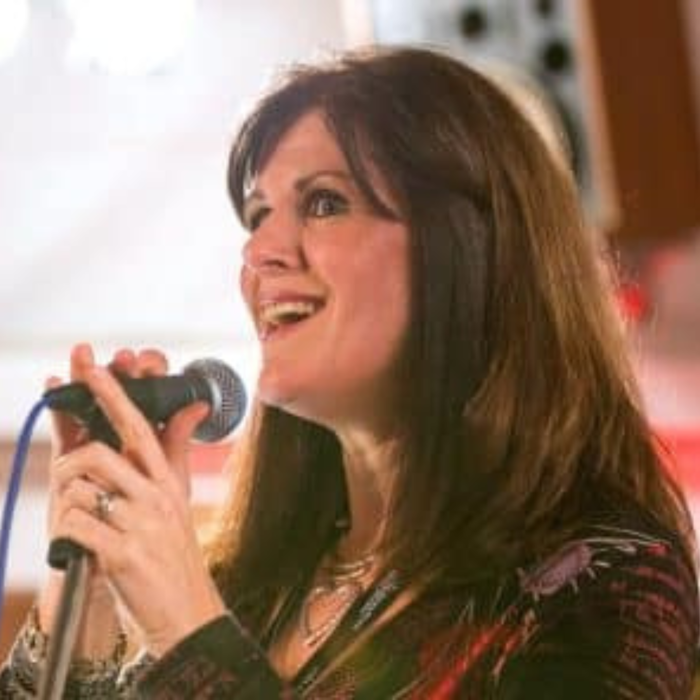One More Time with Feeling; The Use of Emotion for Training Singers
Tuesday 1st September 2020, 5:00 PM - 6:00 PM (London Time)
How does emotion affect the voice, and can it be harnessed as a tool in Western classical vocal pedagogy? Eminent voice pedagogues do use emotion as a pedagogical tool and have described their experience of its usefulness anecdotally (Bozeman, 2013 and 2017; Chapman, 2007; Williams, 2019). Scientists have striven to measure emotionally produced acoustic changes in the voice; these changes can be heard and even accurately perceived by the listener (Scherer, 1986). Muscular changes occur with emotion (Scherer, 1986) in all three components of the vocal apparatus; breathing, vocal folds and vocal tract (Sundberg, 1987), and these changes affect voice acoustics (Laver, 1980). Research shows these emotional effects on vocal acoustics to be comparable in both the speaking and singing voice (Scherer, 2015). Scherer (1986) predicted these changes in his Component Patterning Model of Vocal Affect Expression and subsequent research has largely proven his model which predicts the acoustic result of an emotion based on physiological responses.
This 1 hour webinar will outline;
- Darwin’s phylogenic theory of emotional effect and his theory of the early origins of vocalised emotion.
- Historical use of emotion and its description in the early singing treatise.
- The emotions used anecdotally by pedagogues
- The work of Professor Klaus Scherer and his early predictions of the effect of emotion on voice acoustics based on; his own emotion model of physiological response and, the work of phonetician Professor John Laver who described the acoustic change for different muscular actions of the vocal apparatus. Scherer went on to ‘prove’ his predictions with his own and other scientists research on acoustics of vocalised emotion.
- Current research on the singing voice and the effect of emotion on acoustics; how does the research compare to the emotions used by pedagogues in the studio?
- Interesting correlations with vowel use and emotion.
- Possible ways to elicit emotion in voice teaching; tips from the scientists.
- Kate will present a diagram she has compiled based on a two dimensional model of emotion with the results of the latest acoustic data, the emotions studied, as well as the emotions used anecdotally by pedagogues.
Katrina Sheppeard
Katrina Sheppeard is one of the UK’s most exciting up and coming dramatic sopranos. Since moving from Australia to London in 2008...
Sorry, this is an archived short course...
We have plenty of upcoming short courses coming soon. See details of some of them below or look at the full list of short courses.


Wednesday 2nd July 2025
2:00 PM - 4:00 PM
(London Time)
The identity politics of accent learning!

Jenru Wang
Jenru Wang has an MFA in Voice Studies with distinction from The Royal Central School of Speech and Drama in London - in this session, he will begin to explore the complexities accent coaches might face in their work, examining the intersection of language, identity, and cultural sensitivity. Participants will explore how to navigate challenging situations in different contexts and understand what to do—and avoid—when working with diverse clients and materials.


Thursday 3rd July 2025
5:00 PM - 7:00 PM
(London Time)
Vocal “Decathletes” – inside the hidden world of Session Singing!

Kim Chandler
What is a session singer? Officially it’s a freelance, short-term “singer for hire” brought in to be part of a live or recorded musical project. However, it’s more generally understood to be the “behind-the-scenes” singer who is regularly booked for paid recording work. The type of work (and pay) varies a lot. Session singing is a side of the music industry that is largely hidden from the public and isn’t easy to find out much about, even online. Join Kim Chandler as she unpicks this topic, based on 35 years of session singing!

Monday 7th July 2025
2:00 PM - 4:00 PM
Tuesday 8th July 2025
2:00 PM - 4:00 PM
Wednesday 9th July 2025
2:00 PM - 4:00 PM
Friday 11th July 2025
2:00 PM - 4:00 PM
Monday 14th July 2025
2:00 PM - 4:00 PM
Tuesday 15th July 2025
2:00 PM - 4:00 PM
Wednesday 16th July 2025
2:00 PM - 4:00 PM
Friday 18th July 2025
2:00 PM - 4:00 PM
(London Time)
Introduction to statistics and working with quantitative data for Voice Professionals: 8-Session Online Bootcamp

Dr David Cane
This certificated statistics course is ideal for individuals interested in laying a solid foundation in quantitative research methods. By focusing on essential statistical principles, you will be equipped with the tools to understand and apply quantitative research techniques effectively. Statistics is a crucial component of quantitative research; mastering it will enable you to grasp quantitative methods more confidently and precisely.
